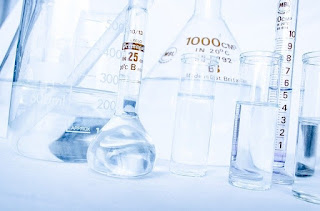In addition to opioids, the western United States is contending with a methamphetamine crisis, again. Meth or “Ice” is a highly potent stimulant; the product that people use today is much stronger than what was being used in the early 2000s at the height of the meth epidemic in America.
While the synthetic opioid fentanyl continues to be the deadliest drug across the country, last month, the Centers for Disease Control and Prevention (CDC) reported that methamphetamine was responsible for more overdose deaths than any other drug in the western states in 2017.
This spring, we wrote about the resurgence of methamphetamine in California. We pointed out then that methamphetamine-related emergency department visits in San Francisco rose 600 percent between 2011 and 2016.
The national effort to curb the opioid epidemic has overshadowed the impact that other drugs are having across the country. On top of meth being far more potent than in previous decades, stimulant use disorder is particularly hard to treat. Unlike opioid use disorder, addiction professionals do not have medications to rely on when treating use disorders involving meth.
Many Americans are familiar with Subutex (buprenorphine) and Suboxone (buprenorphine and naloxone). Some are familiar with Vivitrol and Revia (naltrexone); all three drugs have proven to be beneficial in treating opioid use disorder, especially during detox and in the first few months of abstinence. Naltrexone is also used to help people with an alcohol use disorder; some patients report that the drug reduces cravings.
The point is that the Food and Drug Administration (FDA) has yet to approve a single medication for the treatment of meth addiction. However, some addiction experts are taking a closer look at naltrexone and the drug’s potential to help people living with stimulant use disorders.
Naltrexone for Methamphetamine Addiction
Some research shows naltrexone as being a viable option for some people addicted to methamphetamine, NPR reports. Promising initial results from early studies have prompted several addiction specialists to experiment with treating meth use disorder with naltrexone. The research shows that naltrexone can reduce people’s cravings for methamphetamine.
Dr. Keith Heinzerling, an addiction medicine specialist, is prescribing naltrexone off-label, in conjunction with other medications, according to the article. He contends that a combination of naltrexone, physician oversight, and counseling can be an effective treatment for methamphetamine addiction.
“I think there’s a great opportunity to try naltrexone,” Heinzerling says. “There’s actually a decent amount of evidence that it might help, and if I had a family member [addicted to meth], I would recommend they try it.”
Dr. Heinzerling warns that significantly more research is needed.
Early studies are finding that the drug can be beneficial for certain people. A study published in Neuropsychopharmacology found that naltrexone is better than a placebo at reducing cravings. Researchers at the University of Texas Southwestern Medical Center are conducting a large, multisite study on the efficacy of combining Vivitrol (a longer-acting, injected version of naltrexone) with the antidepressant bupropion. Hopefully, research will lead to conclusive evidence that naltrexone is efficacious for meth addiction.
“The good news is that these drugs have been on the market for a while, so we know what side effects there are and the cost-benefits,” says Psychologist Lara Ray, a professor at the University of California, Los Angeles and head of the UCLA Addictions Lab. “So, it’s possible for providers to be making individual decisions for individual patients to educate [them] to consider off-label.”
California Methamphetamine Addiction Treatment
Please contact Hope By The Sea if you are struggling with meth or another type of stimulant. Our team of addiction experts relies on evidence-based therapies to help clients achieve lasting recovery. We are available around the clock to answer any questions you may have regarding our programs. Hope starts here, and the miracle of recovery can be yours too.


